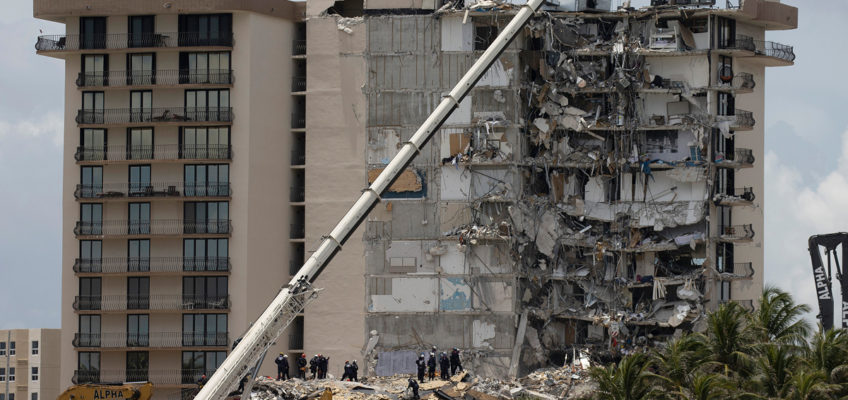After the devastating building collapse in South Florida in 2021, the Florida Legislature passed new inspection requirements to ensure condominiums are safe for continued occupancy.
What Sparked the Reforms?
In June of 2021, the Champlain Towers Condominium in Surfside, Fla. partially collapsed killing 98 people. The collapse was not caused by an earthquake, explosion, or another recognizable trigger. The tragedy was blamed on over forty years of inspection shortcuts and poor construction efforts. According to published reports, had every design flaw been recognized through adequate inspections, the collapse may have been predicted or even avoided.
Prior to the new law, condo buildings across Florida weren’t technically required to be inspected by a licensed architect or engineer after being built and occupied. Required inspections and recertifications by technical professionals are essential to ensure building safety.
Policy Changes You Should Expect
New policy changes from Senate Bill 4-D will specifically focus on greater, more recurrent inspection processes. With the help of Florida condominium engineers, the bill was written to ensure that condominium buildings are properly maintained as they age.
The bill requires condominium associations and developers to set aside substantial reserve funds to cover major repairs when necessary. This will ensure that no shortcuts are taken due to inadequate budgeting or funding. These reserves must be reassessed every ten years and are intended to cover large maintenance costs.
SB 4-D also requires mandatory statewide inspections through a new program. A condo building that is taller than three stories requires one inspection every decade after its certificate of occupancy reaches 30 years of age. The bill requires condominium and cooperative associations to conduct a “structural integrity reserve study” that includes waterproofing, exterior painting, the roof, load bearing walls, floor, foundation, fireproofing and fire protection systems, plumbing, and any item with a deferred maintenance or replacement cost that exceeds $10,000.
Condominiums that are located within three miles of the Florida coast require inspections known as “milestone inspections.” These inspections are required to begin after 25 years of building occupancy and every 10 years thereafter.
All inspection reports must also be published online and shared with owners and tenants. If an inspection uncovers a need for any structural repairs or maintenance, this work is required to be performed no later than a year following the report.
How Change Will Help
The Surfside collapse may have been prevented with the right policies in place. SB 4-D will ensure that extra risks created by Florida salt and humidity and the age of the buildings will be properly addressed. Condominium and cooperative associations will now be required to have adequate reserves to fund major repairs as needed.
Given the large number of condo buildings in the state of Florida — nearly 1.5 million — the new condominium laws will have a significant impact on the safety of those communities. Over 900,000 of these condominiums are over 30 years old, and all will be required to do the structural integrity reserve study by the end of 2024.
Florida’s new legislation may push other states to take similar actions. According to the CEO of the International Code Council, the leading authority on building codes, Florida is to be congratulated for this bill.
“We commend Florida for passing this legislation and emphasizing the critical importance of continued inspection and enforcement of modern building codes to keep buildings and their occupants safe and healthy,” said Dominic Sims, chief executive officer of the International Code Council. “This is an opportunity for other countries, states, and municipalities everywhere to see the steps that have been taken in the wake of this tragedy and make necessary changes to ensure safety for their own communities.”
Coastal Construction Products can connect you to information that protects your buildings and assets. Get more industry news delivered to your inbox by subscribing to our monthly newsletter.

